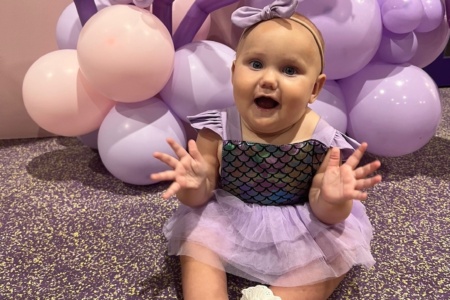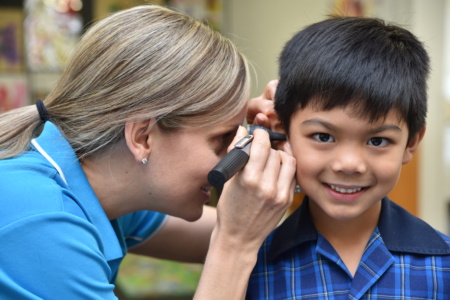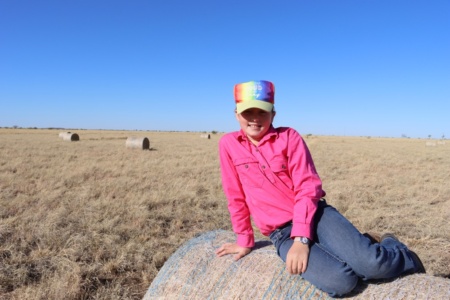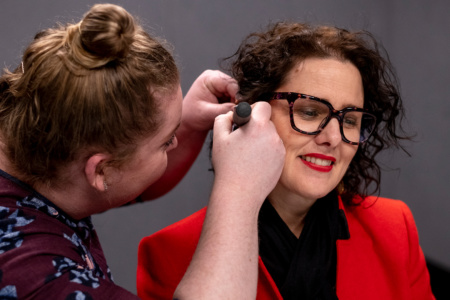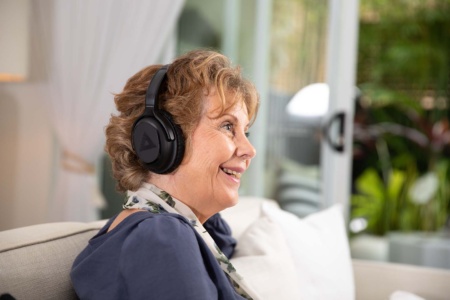Representing Australia in the Deaf International Cricket Cup reinforced for Liam how life-changing sport can be. At 22 years old, Liam played the T20 World Cup in Dubai.
“Competing was an absolute honour and privilege. I had an incredible time with all my fellow teammates. We finished last in the competition, but in a few years’ time I feel as though we will be a team that is hard to beat,” said Liam.

As a young baby Liam was diagnosed with profound hearing loss, and at 18 months old he received his first cochlear implant on his left side. It was common practice to implant on one side only at this point in time. When Liam was in Prep he got a cochlear implant on his right too.
As a child Liam came to Hear and Say for audiology and specialised speech therapy lessons. This early intervention meant that Liam grew up able to hear and speak, which he doesn’t take for granted.
“It’s been a huge effort by the passionate audiologists and speech therapists working at Hear and Say, and by my Mum and Dad. A lot of credit [goes] to them, I get a lot of compliments about how well I’m able to speak,” said Liam.
Growing up Liam went to his local schools and played sport, and as he got older his interest was piqued in Deaf sports.
“I’ve found most of my connections through playing sport. There are so many different sports you can play in the Deaf community and being surrounded by people who are similar to you is actually really, really cool and rewarding,” said Liam.
“With Deaf sports, you can’t actually wear your cochlear implant processors, so to communicate you use sign language.”
The team uses a mix of methods to communicate. There are players like Liam who wear hearing devices and speak, and some teammates hear, speak and use sign language. One player is solely reliant on sign language. In the midst of a game, everyone signs.
“Learning how to communicate via sign and be inclusive of those facing hearing loss challenges is awesome and something that has pushed me to enjoy the game and experience what it’s like in those situations,” said Liam.
“A big part of it is watching your captain and being able to communicate with him. He’s doing a lot of communicating to tell you where you need to be.”

Liam also plays social football and basketball with his mates. During these games he wears his cochlear implants and says verbal communication is critical. When playing Deaf cricket however, Liam explained there is something special about the quiet.
“I feel I have this sense of calmness when I don’t have my cochlear implant processor on because I'm with myself and my thoughts. As a bowler, it's good when I'm at the top of my run up, to be able to focus on one goal and block all the noise out,” said Liam.
Liam is studying physiotherapy and has a world of opportunity ahead of him. From his own experience growing up with hearing loss, he shared his advice for parents who have just found out their child is deaf.

“Try and get your kids involved in sports or group activities so they’re in social settings, I think this really helps to build confidence,” said Liam.
“If they can be socially confident it might help build their confidence about themselves as well. Try and get them outside of their comfort bubble, challenge them to do new things,” he said.
After representing Australia in Deaf sports Liam reflected on how important communication was and expressed how lucky he felt.
“To be able to hear and speak means everything [to me]. I think what Deaf sport has also made me realise is that communication is a massive thing, without it you can’t express how you feel,” said Liam.
“To be able to speak is one thing but to be able to hear is a whole other experience in itself. It’s incredible to be able to do both those things.”


